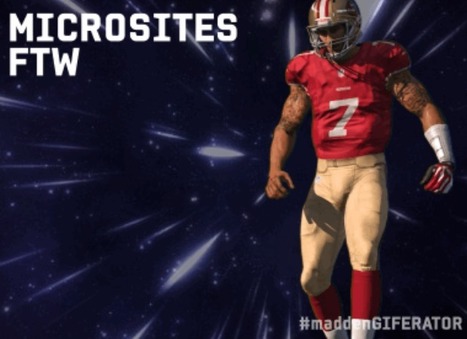Brand publishers are more aware that they’re really just renting social media space on Facebook and are moving resources away from the social network.
One agency said its clients are pulling away from Facebook in “dramatic numbers”—reallocating their resources to microsites and alternate social channels like LinkedIn—after the agency’s social media managers saw a “dramatic dip” in reach for their messaging over the last 16 months. They attributed this decline to Facebook’s EdgeRank algorithm, which curates the content users see in their News Feeds.
“Brands don’t own what happens on Facebook, and as organic reach has been absolutely eviscerated, they remain aware of that,” said Forrester analyst Nate Elliott, adding that marketers have been telling him that they no longer see Facebook as a viable marketing channel....



 Your new post is loading...
Your new post is loading...










Facebook has become a vital social media tool for companies to interact with customers, raise brand awareness, and market their goods/services, however more companies are decreasing their social media investments in Facebook instead towards microsites and other alternative social channels. Companies are becoming more aware that "Likes" don't always guarantee that their messages effectively reach consumers. Companies blame the declining reach due to Facebook's EdgeRank algorithm, which organizes the way content is organized in a users news feed. The companies who are marketing their brand complain that they lack a level of control over their pages and the advertisements being sent out are leading to a lower return on their marketing investment in Facebook. This has led to a flight towards microsites or other smaller social media sites. Whether they are piggy backing on a site such as LinkedIn or created their own small site, these sites offer marketers more control over their content and have more options in page creation. While most of these companies have no plans to fully abandon Facebook, they are still using the site to lure them to these microsites of theirs. According to the Jun Group, clicks that led people to brand-owned-and-operated sites doubled between 2012 and 2013 from 28 percent to 57 percent—while the segment of clicks that ended at Facebook dwindled from 31 percent to 10 percent.
I believe the change is good for marketers who are always striving to enhance their reach and investments. As Facebook becomes more aware of this exodus, then it will most likely adapt to these changes and allow for greater page customization and alter its content algorithm or else risk losing an important segment of its ad revenue. Even if marketers decide to return to Facebook, they now have a new channel to reach potential customers. The problem then moves onto users of social media sites who will be even more bombarded by advertisements no matter which site they go to.